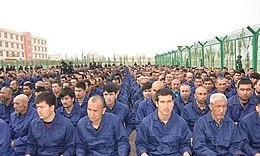Fast-paced not always factual
January 13, 2020
This story was originally published in the third issue of The Bear Truth (December 16, 2019).
Journalism, defined as a news source to inform the public on issues ranging from one’s local community to global events defining the century, is changing. With that said, the demands upon journalists have been extremely high in the past few decades.
With the internet in use, the reach of journalism has grown from local readers to millions of avid supporters. New demands which can be interpreted positively can be seen as a result of a new wave of audience. The transition from traditional print media to an online database has made a journalist’s audience more diverse.
Comparing older broadcasts and print articles to the new wave of details, the style of information has changed dramatically. When gathering information journalists typically pick out the main points: who, what, when, where, why, and how.
With more people invested in receiving their news, the main points have been altered. People want details. The most important reason being the why. Journalists are being held to a standard where they are required to report on not just the happenings of an event, but the means and motive behind the event.
In addition to the demands for more in-depth coverage, the public wants their news delivered at a much faster pace. The internet has acted as a catalyst for a 24/7 news cycle. At the beginning of the century, websites have offered an updated approach to disseminating news items to the public. At any time, anyone can log on and get the latest information about events happening anywhere in the world. Or so it seems.
Is it fair to say that with all these new demands put on reporters, they are now prone to making more mistakes? The hustle and bustle of a newsroom are often overlooked. Take the 2013 Boston Marathon for example.
Once one outlet reported that a suspect had been arrested, it was picked up and spread across television. This was, in fact, incorrect as there were no arrests made.
The public looks to these organizations for their daily news, but what happens when the organization itself makes a mistake in its reporting? Who is to be held accountable?
As this three-part series is wrapping up, the importance of journalism is crucial in today’s age. How else can our public expect to receive accurate and unbiased updates on the events that occur in our world?
As I wrap up this three-part journalism series it is important to reiterate that many things go into the making of an article or broadcast. Around the world, the number of newsrooms is declining. With the few remaining, they are held to higher standards. Some may even have a political agenda in mind.
So the question we must ask ourselves is this. Is it more important to get the news to people in the most fast-paces possible or is it more important to fact check our information and get the story right?




















